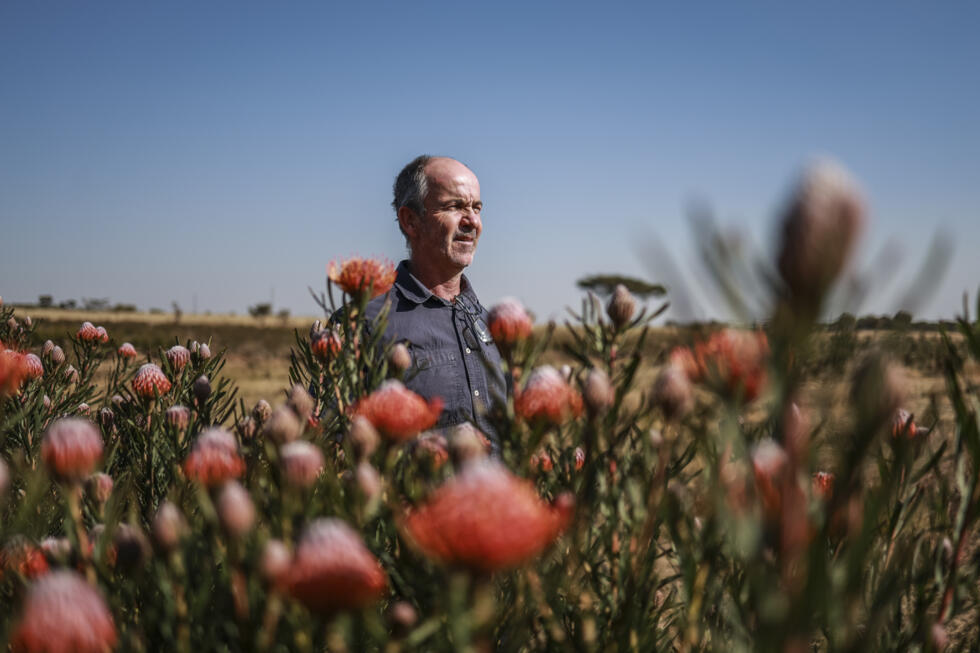The King Protea, South Africa’s national flower, continues to inspire awe and admiration.
On a farm two hours north of Johannesburg, thousands of these majestic blooms are thriving far from their natural home.
Farmer Nico Thuynsma has spent over three decades growing proteas in the dry, frosty grasslands of the north.
His success could offer a blueprint for preserving the species amid growing threats to their native habitat in the Cape Floral Kingdom.
The Beauty and Diversity of Proteas
South Africa’s Proteaceae family includes over 350 species, each with distinct colors and forms.
From delicate “blushing brides” to fiery “pincushions,” the diversity is unmatched.
The crown jewel of them all is the King Protea, which stands out with its large pink and white blossom.
This national symbol is not only the largest of the species but also the most exported, generating nearly R275 million in revenue last year.
Its unique structure and striking appearance have made it a fixture on currency, sports emblems, and even South Africa’s G20 presidency logo.
Challenges Facing Native Proteas
Despite the King Protea’s fame and protection, nearly half of South Africa’s other protea species face extinction.
This is due to habitat loss from agriculture, invasive species, and disrupted fire cycles.
According to the South African National Biodiversity Institute (SANBI), these challenges are especially pressing in the Cape Floral Kingdom.
Climate change poses the most serious threat.
Experts predict hotter, drier conditions will dramatically alter this unique biome.
Plant scientist Nigel Barker warns that many range-restricted species could disappear entirely if current trends continue.
A Farm Defying the Odds
Thuynsma’s farm in northern South Africa is proving that proteas can survive and thrive in non-traditional environments.
He now grows nearly 200 varieties, including some once thought unsustainable in their original habitats.
By experimenting with irrigation gels and minimal water, he has demonstrated that proteas can adapt.
His latest test involves 36 varieties planted with just two liters of water-enhanced gel.
Thuynsma believes these plants already possess the resilience needed to flourish in harsh conditions.
His ultimate goal is to help estates and everyday gardeners cultivate proteas without heavy irrigation.
A Symbol of National Identity
The protea is more than just a flower.
It’s a symbol woven into South Africa’s national identity.
Locals and tourists alike seek out proteas for their beauty and cultural significance.
From cricket jerseys to presidential emblems, the King Protea reflects the spirit of a country rich in biodiversity and resilience.
Thuynsma, crouched beside a seedling, summed it up best.
“I don’t think I have a solution for climate change,” he said with a smile.
“But I do have a solution: to plant proteas.”
Nearby, thousands of young plants in his nursery await their moment to bloom under the African sun.
“I love them, I protect them, I collect them,” he added proudly.
“The protea is part of South Africa’s DNA.”
